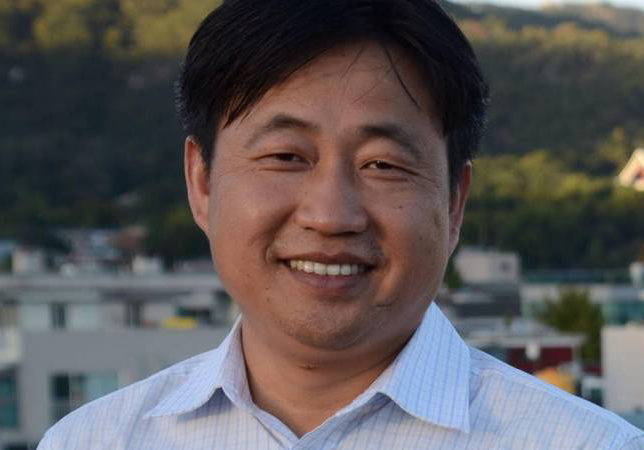
May 2, 2017 | News
The ICJ today called on the Chinese government to release immediately Xie Yang, a prominent human rights lawyer who was arrested during the crackdown on human rights defenders in July 2015. Authorities have now canceled his scheduled trial without giving a reason.
He was charged on 16 December 2016 with inciting subversion of State power and disrupting court order. He is detained at an undisclosed location.
“Xie Yang’s arrest and prosecution seem to be in connection with his performing legitimate professional functions as a human rights lawyer,” said Sam Zarifi, ICJ’s Secretary General.
“No lawyer should ever be subject to persecution for carrying out their professional duties. Lawyers in China like Xie Yang are indispensable in ensuring human rights protection and upholding the rule of law in China,” he added.
Xie Yang had served as counsel of the family of Xu Chunhe, who was alleged to have been shot dead by police authorities in May 2015 in Heilongjiang Province.
He also acted as counsel for persons alleging religious persecution, alleged victims of unlawful land seizures, and outspoken critics of the government.
The ICJ emphasized that in the absence of evidence that he has committed a cognizable offence, the criminalization of which is consistent with international human rights law, Xie Yang should be immediately released.
In January 2017, the lawyers of Xie Yang alleged that he had been subjected to prolonged sleep deprivation, forced into stress position for more than 20 hours a day, verbally harassed and threatened, and subjected to regular beatings and other forms of torture and ill-treatment.
“The government should release Xie Yang immediately and conduct a prompt, thorough, and impartial investigation on the allegations that he has been subjected to torture,” Zarifi said.
The ICJ received information that Xie Yang has not been able to communicate with his lawyers ever since he reported to them his torture allegations by police authorities.
He has now been assigned State-appointed counsel.
The ICJ further called on the government to bring to justice any persons found to be responsible for the torture of Xie Yang.
Under no circumstances must any statement he may have made during his interrogation under torture or ill-treatment be admitted into evidence at his trial.
Contact:
Emerlynne Gil, ICJ’s Senior International Legal Adviser, t: +66 840923575 ; e: emerlynne.gil(a)icj.org
Additional information
Following his arrest, Xie Yang was detained for the first six months in an undisclosed location, but was subsequently transferred to the Changsa City No. 2nd Detention Center.
He was again transferred to an undisclosed location where he remains detained to this day.
The date and the reason for the transfer are unknown.
Xie Yang’s treatment comes amidst a much wider attack on lawyers and human rights defenders in China.
Since 9 July 2015, the government has launched an unprecedented nationwide crackdown – now commonly referred to as the “709 Crackdown” to mark the start of the crackdown – which resulted in the interrogation, detention, and/or criminal indictment of nearly 250 human rights lawyers and activists.
Photo credit: ChinaChange.com
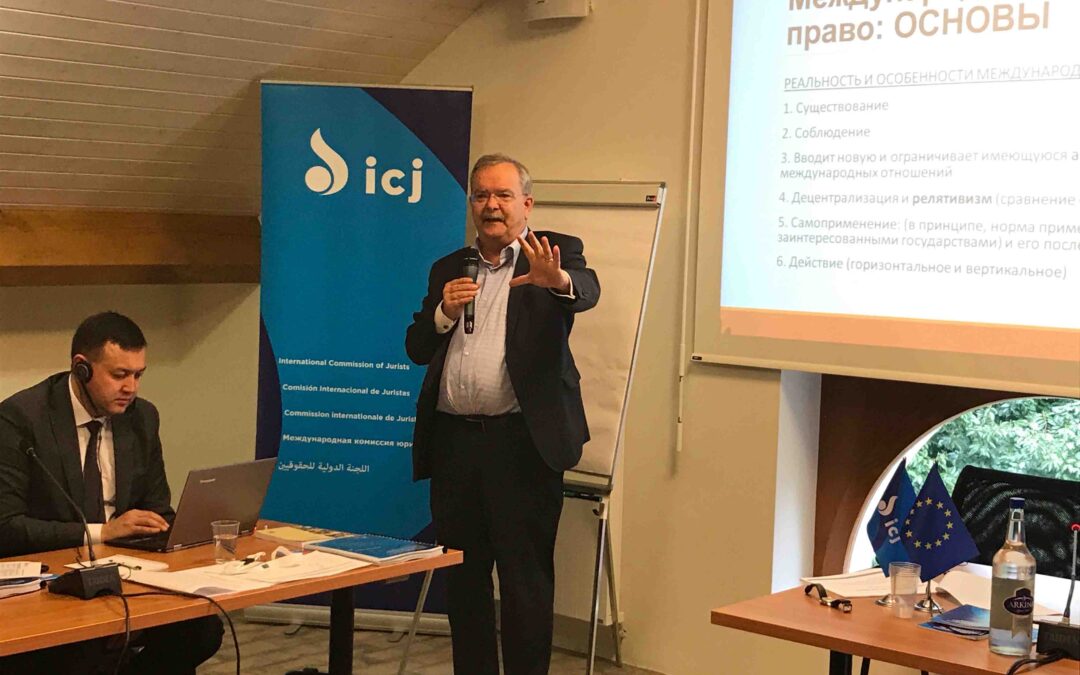
May 1, 2017 | News
Today, the ICJ begins its third International Human Rights Training Programme for Lawyers from Central Asia.
The objective of this programme is to train Central Asian lawyers on application of international human rights law in criminal proceedings.
In the course of the programme, the participants will learn how to use international human rights law in national courts and to make effective use of international human rights mechanisms.
Leading international experts and practitioners will share their insights with the participants of the training programme on how to interpret key concepts of international human rights law and apply them in practice, both nationally and internationally.
The training programme is built around the study of the relevant international jurisprudence on the right to fair trial, right to liberty, freedom from torture and other ill-treatment, and associated rights, including cases originating from Central Asian region considered by UN treaty bodies, such as the UN Human Rights Committee.
“Lawyers are on the frontline of implementing international human rights law in practice, and this remains an enormous challenge in Central Asia,” said Róisín Pillay, Director of the ICJ Europe and CIS Programme.
“The programme presents a unique opportunity for lawyers from the region to meet key experts in international human rights law, officials from the UN Secretariat and other lawyers from the ICJ network, and to develop practical expertise on how to apply international human rights law in the defence of their clients,” she added.
In the course of the training programme, the participants will attend one of the meetings during the 60th session of the UN Committee Against Torture (CAT) that will take place in Geneva on 18 April–12 May 2017.
The 25 participants have been selected through a rigorous process from among 150 applications from across the region, which testifies to the growing interest of lawyers from the region in applying international human rights standards in their practice.
The ICJ is grateful to the European Union for its support of this initiative.
Download training materials in Russian:
Central Asia-Arbitrary arrest and detention-Training Modules-2017-RUS
Central Asia-CIS lawyers training-Training Modules-2017-RUS
Central Asia-Master file caselaw-GTP-Training Modules-2017-RUS
Central Asia-NRefpresMFICJ-CIS training-Training Modules-2017-RUS
Central Asia-PIL and HRL_Sassoli-Training Modules-2017-RUS
Central Asia-PPT Right to life-Training Modules-2017-RUS
Central Asia-Torture Pollard-Training Modules-2017-RUS
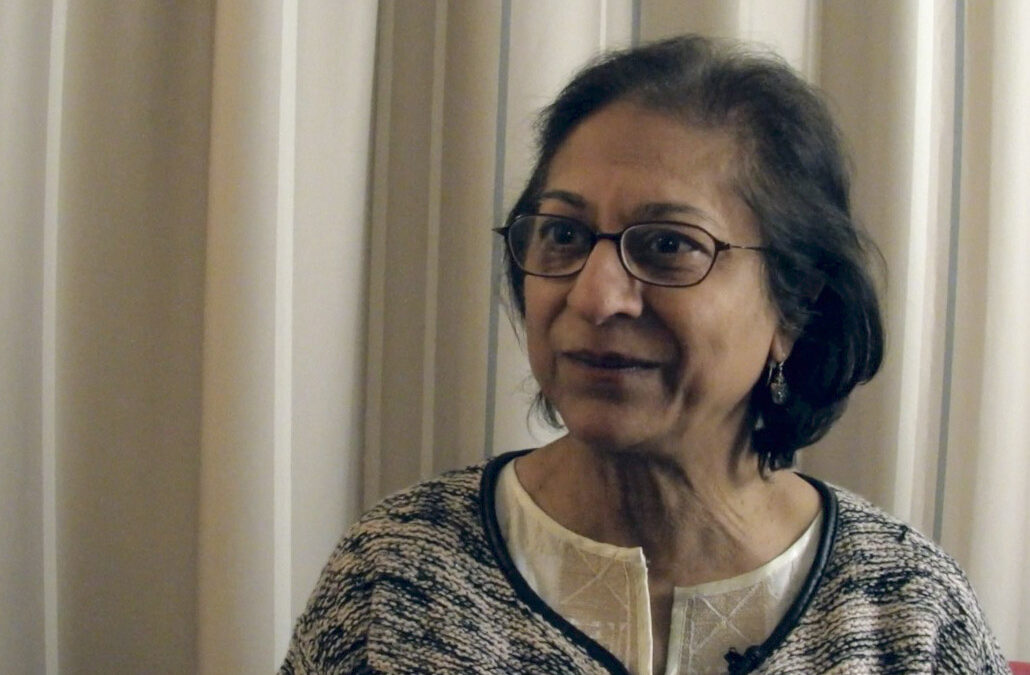
Apr 28, 2017 | Multimedia items, News, Video clips
Honorary Member of the ICJ, Asma Jahangir, talks of her experiences as part of the ICJ’s ongoing profile series on women human rights defenders.
Asma Jahangir became interested in human rights legal work after having witnessed the frequent arrests of her father, an outspoken critic of military dictatorships, and seeing the courtroom as a place where justice could be accessed. From these early experiences, Asma identified the importance of rule of law but came to understand that this was something that went far beyond the courtrooms of Pakistan.
As a married women, her in-laws had concerns about her practicing law in a mixed firm so she co-founded Pakistan’s first all-female law firm. Initially the firm was viewed as a hobby but Asma and her other co-founders persevered and the firm still thrives today.
Ms Jahangir spoke about the challenges she faced as a female lawyer where courts and judges were at first patronizing towards her and then became angry at her as she continued to present them with cases that were challenging for them. She worked on a number of landmark cases including about whether women could get married without their fathers’ permission, be entitled to family maintenance and whether women should be judged according to religious or codified law.
Women in Pakistan face many issues in accessing justice, Ms Jahangir said. They lack resources, if they are able to access the courts they are frequently exploited by male lawyers and they encounter prejudice in their cases. In addition many laws are simply discriminatory, however women have been challenging these and will continue to do so.
There has been progress in family law in Pakistan, particularly in relation to the procedures if not the substance, yet Pakistan remains a long way from having equality in the family law framework.
Asma noted that it can be hard to engage men in women’s rights issues but commented that many men who had not considered giving certain rights to their wives had become a lot more conscious about women’s rights issues as their daughters had grown up. Many of her colleagues now ask for internships for their daughters at her law firm and admit how narrow-minded they had previously been in relation to women’s rights and equality.
From 2004 to 2010, Ms Jahangir served as the UN Special Rapporteur on Freedom of Religion and explained that she worked with the Special Rapporteur on Freedom of Expression to address the delicate balance in managing freedom of religion and freedom of expression.
Freedom of expression is currently under threat around the world, Asma commented, and is being undermined in the name of a variety of reasons including security, religion and tradition or social norms. Asma said that freedom of expression is fundamental to basic human rights because stopping freedom of expression stops people from thinking.
“Self-censorship is a by-product of undermining freedom of expression and self-censorship by itself dis-informs people, brings out irrelevant issues, and suppresses the more relevant issues.”
Ms Jahangir told the ICJ that in the course of her work as a human rights activist she has been threatened, put under house arrest and imprisoned. However, rather than deterring her, Asma’s experience in jail made her stronger: “It made every woman who went to jail stronger and more resolute that we want rights.”
There was a particular case that had a strong impact on Asma, which was when she worked in defence of a child who had been accused of blasphemy and was sentenced to death. The initial verdict against the boy knocked her confidence as a lawyer, but senior colleagues encouraged her and she continued with the case, taking this to appeal.
This was a very contentious case that attracted a lot of negative attention against Ms Jahanagir. People claimed she was anti-Muslim and, as she argued for the defendant, crowds gathered outside the court calling for her execution. At one point opposing lawyers asked the judges if they could simply close the case but the judges said that if Asma was prepared to keep arguing they were prepared to hear her arguments.
Asma explained that she was inspired to continue by the defendant himself, a boy of around 14 years of age, who, when given the opportunity to run away whilst on bail, decided to stay and continue the trial rather than risk others being harmed in retaliation if he were to flee. She felt that even if she had to give her life to defend this child then it would be worth it. Ultimately the case was decided in the boy’s favour and he was acquitted.
She advised young women interested in a career as a human rights lawyer not to label themselves as ‘human rights lawyers’ rather than simply ‘lawyers’ or they will not be taken seriously. Asma said that “I think that life where you don’t have dignity and where you don’t fight for people’s dignity is a wasted life.”
Watch the interview:
The series of profiles introducing the work of ICJ Commissioners and Honorary Members on women’s rights was launched on 25 November 2016 to coincide with the International Day to Eliminate Violence against Women and the first day of the 16 Days of Activism Against Gender-Based Violence Campaign.
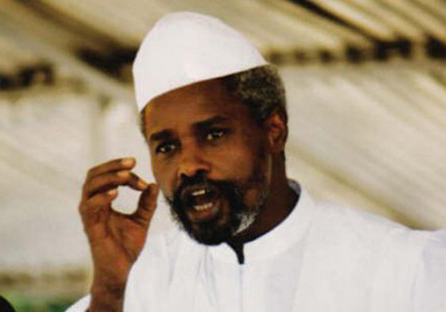
Apr 27, 2017 | Communiqués de presse, Nouvelles
Pour la CIJ et deux autres groupes de défense des droits humains, la confirmation en appel de la condamnation de l’ancien président tchadien pour crimes contre l’humanité, crimes de guerre et torture est la conclusion d’une longue campagne menée par les survivants du régime.
La condamnation de Habré en mai 2016 a été confirmée par la Cour d’appel des Chambres africaines extraordinaires au sein des juridictions sénégalaises le 27 avril 2017.
La Cour a également réaffirmé la sentence de perpétuité prononcée par la Chambre d’assises et a ordonné le paiement de 82 milliards de francs CFA (environ 123 millions d’euros) par Habré aux victimes.
« C’est une consécration pour les victimes de Hissène Habré qui, en 26 ans de lutte, n’ont jamais cessé de se battre pour le faire traduire en justice » a déclaré Reed Brody, avocat américain et membre la Commission internationale des juristes, qui travaille aux côtés des survivants depuis 1999.
« Cette condamnation définitive envoie un signal fort aux tyrans, à travers le monde, leur rappelant que s’ils commettent des atrocités, ils ne seront jamais hors de portée de leurs victimes, » a-t-il ajouté.
La Chambre d’appel a également confirmé la décision ordonnant de payer des réparations aux victimes et a précisé que l’argent devait être distribué via un Fonds créé par l’Union africaine (UA) qui sera chargé de chercher et recouvrer les avoirs de Habré.
Un résumé de la décision a été lu en audience par le Président de la Cour, Ouagadeye Wafi, un juge de la Cour suprême du Mali. La Cour était composée de Wafi et de deux juges sénégalais.
Habré, qui a dirigé le Tchad de 1982 à 1990, n’était pas présent lorsque le jugement a été rendu.
Habré n’a jamais reconnu l’autorité des Chambres et est resté silencieux tout au long du procès. Ses avocats commis d’office ont interjeté appel en son nom.
Habré a fui au Sénégal en 1990, après qu’il ait été renversé par l’actuel président du Tchad Idriss Déby Itno.
Bien qu’il ait été arrêté et inculpé une première fois au Sénégal en 2000, une campagne de longue haleine a dû être menée par ses victimes avant que les Chambres africaines extraordinaires ne soient inaugurées par le Sénégal et l’UA en février 2013, pour juger des crimes internationaux commis au Tchad sous le régime de Hissène Habré.
« Depuis que je suis sorti de prison, il y a plus de 26 ans, je me suis battu pour que justice soit faite, » a déclaré Souleymane Guengueng, qui faillit mourir de mauvais traitements et de maladie dans les geôles de Habré, et qui a fondé l’Association des victimes des crimes du régime de Hissène Habré (AVCRHH). « Aujourd’hui, je me sens enfin libre. »
C’est la première fois que les tribunaux d’un État jugent l’ancien dirigeant d’un autre État pour des violations des droits humains.
La Chambre d’appel a jugé que bien qu’elle considérait crédible Khadidja Hassan Zidane, qui a déclaré que Habré l’avait violée à quatre occasions, elle ne pouvait pas condamner Habré d’avoir commis des viols car cette inculpation ne figurait pas dans l’acte d’accusation.
« Après 26 ans d’obstination, et presqu’autant d’années de procédure judiciaire, notre combat a enfin abouti, » a déclaré Jacqueline Moudeina, avocate principale des victimes et présidente de l’Association tchadienne pour la promotion et la défense des droits de l’Homme (ATPDH).
Des réparations octroyées aux victimes
Dans la décision rendue aujourd’hui, la Cour d’appel a confirmé la décision de la Chambre d’assises accordant à chaque survivante de viol et d’esclavage sexuel 20 million de francs CFA (environ 30 490 euros / 32 702 US dollars), à chaque survivant de tortures et de détention arbitraire ainsi qu’aux anciens prisonniers de guerre 15 millions de francs CFA (22 867 euros / 24 526 US dollars) et 10 millions aux victimes indirectes (15 244 euros / 16 350 US dollars).
La Cour a déclaré que 7 396 victimes étaient éligibles à recevoir des réparations et que les 3 489, qui n’ont pas fourni de documentation suffisante, pourraient s’adresser au Fonds créé par l’UA.
La Cour a déjà gelé certains avoirs de Habré, dont une maison dans les quartiers huppés de Dakar estimée à environ 680 000 euros ainsi que des petites sommes sur plusieurs comptes en banque.
Il est probable que Habré possède davantage d’actifs.
« L’argent ne me rendra jamais mes amis, » a déclaré Clément Abaïfouta, ancien prisonnier qui était forcé d’enterrer les corps de détenus dans des fosses communes et actuellement président de l’association des victimes. « Mais l’argent est important pour guérir les blessures, pour sortir les victimes de la pauvreté, et montrer que nous avons des droits qui doivent être reconnus. »
« Grâce à ce verdict, nous pouvons maintenant essayer de localiser et de saisir les avoirs de Habré et s’assurer que les victimes reçoivent bien réparation de leur préjudice, » a déclaré Me Moudeina.
Contact
Reed Brody, Commissaire de la CIJ, t: +1-917-388-6745 ; e: reedbrody(a)gmail.com
Tchad-Hissene Habre peine confirmee-News-Press Releases-2017-FRE (texte intégral, en PDF)
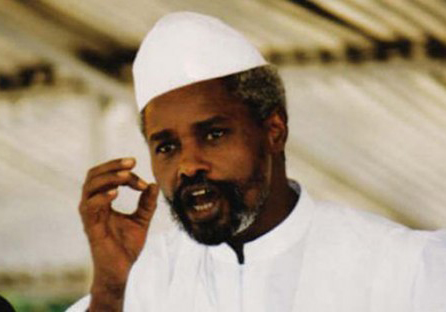
Apr 27, 2017 | News
An appeals court’s confirmation of the conviction for crimes against humanity, war crimes and torture of Hissène Habré, the former president of Chad, is a vindication of the decades-long campaign waged by his survivors, the ICJ and two human rights groups supporting the victims said today.
Habré’s May 2016 conviction was upheld by the appeals chamber of the Extraordinary African Chambers in the Senegalese court system on April 27, 2017.
The appeals court also confirmed the life sentence handed down by the trial court and ordered Habré to pay over 82 billion CFA francs (approximately 123 million euros) to his victims.
“This is a crowning victory for Hissène Habré’s victims, who for 26 years never gave up fighting to bring him to justice” said the ICJ Commissioner Reed Brody, who has worked with the survivors since 1999.
“His life sentence is a wake-up call to tyrants everywhere that if they engage in atrocities they will never be out of the reach of their victims,” he added.
The appeals court also upheld the decision to order compensation to Habré’s victims and said that a trust fund created by the African Union (AU) should be tasked with searching for and recovering Habré’s assets.
A summary of the decision was read out in court by chief judge Ougadeye Wafi, a judge of the Supreme court of Mail, who shared the bench with two senior Senegalese judges.
Habré, who ruled Chad from 1982 to 1990, was not in court for the judgment. He did not recognize the chambers’ authority and sat silently throughout the trial.
His court-appointed lawyers filed the appeal on his behalf.
Hissène Habré fled to Senegal in 1990 after being deposed by the current Chadian president, Idriss Déby Itno. Although Habré was first arrested and indicted in Senegal in 2000, it took a long campaign by his victims before the Extraordinary African Chambers were inaugurated by Senegal and the AU in February 2013 to prosecute crimes under international law committed in Chad during Habré’s rule.
“I have been fighting for this day since I walked out of prison more than 26 years ago,” said Souleymane Guengueng, who nearly died of mistreatment and disease in Habré’s prisons, and later founded the Association of Victims of Crimes of the Regime of Hissène Habré (AVCRHH). “Today I finally feel free.”
Habré’s trial was the first in the world in which the courts of one country prosecuted the former ruler of another for alleged human rights atrocities.
“At long last, after so many years of fighting, so many years of setbacks, we have achieved what we set out to do,” said Jacqueline Moudeina of Chad, the victims’ chief lawyer and president of the Chadian Association for the Promotion of Human Rights (ATPDH).
The appeals court said that while it accepted the credibility of the witness Khadidja Hassan Zidane who stated that Habré personally raped her on four occasions, it could not convict Habré of personal having committed rape because the charge was not included in the individual indictment.
In the ruling upheld today, the trial court awarded each survivor of rape and sexual slavery 20 million CFA francs (approximately 30,489 Euros, US$32,702), each survivor of torture and arbitrary detention and each mistreated former prisoner of war 15 million CFA francs (22,867 Euros, US$24,526), and family members of victims 10 million CFA francs (15,244 Euros, US$16,350).
It said that 7,396 victims were eligible for reparations and that 3,489 others who had not produced sufficient proof could apply to the trust fund.
The court has already frozen some assets belonging to Habré including a house in an upscale Dakar neighborhood believed to be worth about 680,000 Euros as well as some small bank accounts. Habré is thought to have much more extensive assets.
“Money will never bring back my friends,” said Clément Abaïfouta, who as a prisoner was forced to bury other detainees in mass graves, and is now president of the AVRCHH. “But money is important to heal the wounds, to take victims out of poverty, and to show that we have rights that must be recognized.”
“With this verdict, we can now try to locate and seize Habré’s assets and make sure the victims are compensated,” said lawyer Moudeina.
Contact
Reed Brody, ICJ Commissioner, t: +221-76-618-79-10 (in Dakar) or +1-917-388-6745 ; e: reedbrody(a)gmail.com
The full text of the press release can be downloaded in English and in French below:
Chad-HisseneHabre Conviction Upheld-News-Press Releases-2017-ENG (English, PDF)
Tchad-Hissene Habre peine confirmee-News-Press Releases-2017-FRE (Français, PDF)









